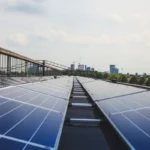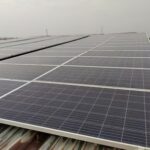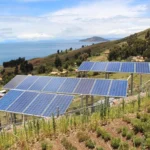India and Japan Strengthen Renewable Energy Cooperation
India and Japan have initiated a partnership under the Asia Energy Transition Initiative (AETI) to support India’s clean energy transition. India has set an ambitious target of achieving net-zero by 2070, while Japan aims to achieve the same by 2050. The partnership would work on the agenda covered in the India-Japan Energy Dialogue 2007 and will subsequently expand into areas of mutual benefit. The two countries are utilizing new technologies and economic models that would help reduce emissions. The Indian subcontinent’s massive renewable energy potential can boost green hydrogen (GH2) production and immense potential for a GH2 economy. Nepal and Bhutan have surplus hydropower potential and green hydrogen electrolysers can tap this in countries like India and Bangladesh. With increasing electricity prices, finding a sustainable energy mix has become necessary for Japan, which currently faces twin challenges of energy security and transition. The country ranks fifth globally for its renewable energy capacity in 2021, according to Fitch Solutions.
Japan has also raised its renewable energy targets with an aim for 36-38% of renewables in its energy mix by 2030 based on the Strategic Energy Plan released in October 2021. Renewable energy resources account for 10% of the total energy, which has increased from 5.4% in 2012 to more than 10.4% of the TPES in 2020. The Feed-in Premium (FiP) scheme by the government of Japan was implemented in April 2022 and is expected to improve the country’s energy transition and complement the existing FiT scheme, which has been in the market since 2012. FiTs were awarded to 250 kilowatt (KW) and 1 megawatt (MW) solar projects in the 12th Solar Auction Tender in June 2022. The FiPs were awarded to solar projects which were above 1 MW.
Another point of interest for Japan in renewable energy is offshore wind technology with the designation of three areas off the coast of Nagasaki, Niigata, and Akita areas for developing wind farms. The ministry selected five more areas as promising zones and eleven more suitable zones for developing offshore farms. This presents a good opportunity for potential investors in such renewable projects. India and Japan can play an important role in clean energy transitions in south Asia. The first India-Japan environment week was held in New Delhi from January 12-13, 2023, to discuss various issues such as COP27 and G20/G7 leadership, among others. The increased reliance on fossil fuels remains a big hurdle. Acknowledging the challenges, the government has initiated reforms such as the Green Growth Strategy in 2020 to achieve carbon neutrality. The grid interconnection problems have been a challenge for India, but events like the India-Japan Environment week would help create a roadmap to integrate variable renewable energy into the system through technological, institutional, and personnel cooperation.
Suggested Articles

How to select the best solar panel for your solar rooftop project?
Crystalline silicon photo voltaic (PV) technology has given…

Solar makes sense for the Healthcare Industry. Here’s why.
In comparison to a conventional commercial facility, hospitals consume more energy.

Perovskite: Future of Solar Cells
Perovskites come in many different forms, but the ones that are most intriguing to the solar business are crystals made of organic and inorganic molecules joined to lead or tin atoms.

Generation Based Incentive Proposed for Rooftop Solar in Haryana
Haryana plans to offer Generation Based Incentive (GBI) for rooftop solar installations, promoting clean energy adoption and reducing electricity costs for consumers.

7 Common Myths about Solar Energy in India
Solar power is not only less expensive, but it is also the most abundant source of clean energy.

Net Metering and its Advantages
Net metering is a system of control. Its purpose is to maintain checks and balances specifically for those who have solar heating panels on their roofs. It is also a net preserver of energy usage.

Intentional islanding option in solar rooftop projects
Net metering is a critical dimension on the early and…

Save on Electricity in Haryana Using Net Metering: Complete Guide
Learn how to save on electricity in Haryana with net metering. Step-by-step guide on benefits, installation, and cost savings for your home or business

Are Colleges and Schools ready to take up Solar challenge?
Colleges are exploring the option of installing solar solutions…

How Solar PV modules are made?
To make a Solar PV Module, solar cells are joined physically…